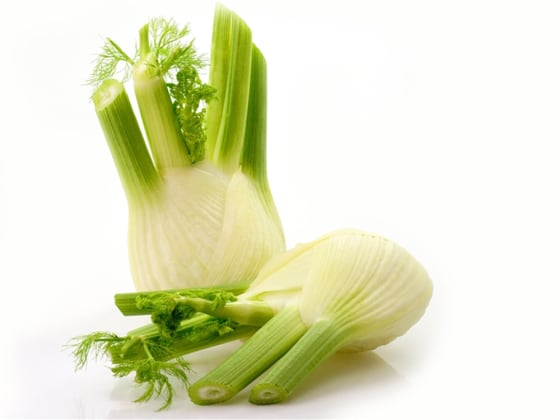
Featurepics stock
Want to wring out your system as part of the annual spring cleaning? Skip the weird (and often dangerous) detox diets or cleanses. You can get rid of toxins and purify your body simply by adding these foods into your everyday eating plan.
Watercress
Spring is the ideal time to add fresh greens to your diet, and this member of the mustard family can help eliminate impurities in the body, says Frances Largeman-Roth, dietitian nutritionist and author of "Eating in Color: Delicious, Healthy Recipes for You and Your Family." "Watercress is high in isothiocyanates, which aid the body in getting rid of potential carcinogens," she explains.
Spring is the ideal time to add fresh greens to your diet, and this member of the mustard family can help eliminate impurities in the body, says Frances Largeman-Roth, dietitian nutritionist and author of "Eating in Color: Delicious, Healthy Recipes for You and Your Family." "Watercress is high in isothiocyanates, which aid the body in getting rid of potential carcinogens," she explains.
Largeman-Roth generously tosses this plant into salads, sandwiches and egg dishes, since it totals about four calories per cup.
Artichokes
This floral-looking green can help detoxification in the liver and colon, says Dr. Ian K. Smith, co-host of "The Doctors" and author of The New York Times No. 1 bestseller "Super Shred: The Big Results Diet: 4 Weeks, 20 Pounds Lose It Faster!" "It's rich in a compound called cynarin, which stimulates both the liver and gall bladder.” Glassman adds that artichokes also contain caffeoylquinic acids, which have antioxidant, antibacterial and anticancer properties. “And, since artichokes are rich in fiber and take a longer time to eat, they help promote the practice of mindful eating,” she says.
This floral-looking green can help detoxification in the liver and colon, says Dr. Ian K. Smith, co-host of "The Doctors" and author of The New York Times No. 1 bestseller "Super Shred: The Big Results Diet: 4 Weeks, 20 Pounds Lose It Faster!" "It's rich in a compound called cynarin, which stimulates both the liver and gall bladder.” Glassman adds that artichokes also contain caffeoylquinic acids, which have antioxidant, antibacterial and anticancer properties. “And, since artichokes are rich in fiber and take a longer time to eat, they help promote the practice of mindful eating,” she says.
Dandelion greens
This edible leaf, which derives from the common dandelion plant, has been used around the globe for various health conditions, says nutritionist Keri Glassman, founder and president of Nutritious Life in New York City and author of "The New You (and Improved!) Diet."
This edible leaf, which derives from the common dandelion plant, has been used around the globe for various health conditions, says nutritionist Keri Glassman, founder and president of Nutritious Life in New York City and author of "The New You (and Improved!) Diet."
“Chock full of the antioxidant vitamins A and C, dandelion greens have the ability to increase the flow of bile — a fluid produced by the liver to aid in the breakdown of fats — and make digestion a faster and more efficient mechanism.”
Glassman suggests tossing them into soups and salads. “They can also be sautéed, much like you would kale, spinach or collards.”
Rosemary
An aromatic herb used as a flavoring on meat and poultry, this member of the mint family is also believed to have detox abilities, Smith says. “Rosemary stimulates the liver — the body’s detox center — and can dramatically increase the amount of bile released, thus leading to the clearing of toxins,” he explains. “This herb also contains a compound called carnosic acid which is believed to help the body produce glutathione, an antioxidant that also has detoxifying powers.”
An aromatic herb used as a flavoring on meat and poultry, this member of the mint family is also believed to have detox abilities, Smith says. “Rosemary stimulates the liver — the body’s detox center — and can dramatically increase the amount of bile released, thus leading to the clearing of toxins,” he explains. “This herb also contains a compound called carnosic acid which is believed to help the body produce glutathione, an antioxidant that also has detoxifying powers.”
Beets
This deep-red vegetable is a rich reserve of betaine, a “life-promoting substance that supports liver function and optimizes its detoxification capacity,” says Cheryl Forberg, dietitian, chef and nutritionist for NBC's "The Biggest Loser" and author of "Flavor First." As an added bonus, Forberg adds that betaine may also promote cardiovascular health because it suppresses levels of the potentially-harmful amino acid homocysteine.
This deep-red vegetable is a rich reserve of betaine, a “life-promoting substance that supports liver function and optimizes its detoxification capacity,” says Cheryl Forberg, dietitian, chef and nutritionist for NBC's "The Biggest Loser" and author of "Flavor First." As an added bonus, Forberg adds that betaine may also promote cardiovascular health because it suppresses levels of the potentially-harmful amino acid homocysteine.
Tumeric
“This powerful antioxidant is believed to increase the livers ability to neutralize and eliminate toxic chemicals,” Smith says. The active ingredient is curcumin, which gives this member of the ginger family its warm yet bitter-flavored spice and yellow color. Smith adds that its best used in powder form and is commonly sprinkled in soups, as well as on rice, chicken, meat and veggie dishes.
“This powerful antioxidant is believed to increase the livers ability to neutralize and eliminate toxic chemicals,” Smith says. The active ingredient is curcumin, which gives this member of the ginger family its warm yet bitter-flavored spice and yellow color. Smith adds that its best used in powder form and is commonly sprinkled in soups, as well as on rice, chicken, meat and veggie dishes.
Onions Whether white, yellow or red, this vegetable is rich in sulfonate compounds. “Similar to the sulfur compounds found in cabbage and cruciferous vegetables, onions interact beneficially with our liver's detoxification processes, promoting aggressive attack on cancer-causing substances,” says Forberg. If onions aren’t to your liking, chives, leeks and shallots will also have the same cleansing effect.
Fennel
Crunchy and slightly sweet in flavor, this pale green bulb vegetable can offer the digestive tract a natural boost, says Glassman. “It aids the body in digestion by amping up the secretion of gastric acids, the chemicals secreted to break down food within the stomach,” she explains. Fennel can be eaten raw — everything from the stalk to the seeds are edible — or sautéed. “One of my favorites dishes is roasted fennel with olive oil and parmesan,” adds Glassman.
Crunchy and slightly sweet in flavor, this pale green bulb vegetable can offer the digestive tract a natural boost, says Glassman. “It aids the body in digestion by amping up the secretion of gastric acids, the chemicals secreted to break down food within the stomach,” she explains. Fennel can be eaten raw — everything from the stalk to the seeds are edible — or sautéed. “One of my favorites dishes is roasted fennel with olive oil and parmesan,” adds Glassman.
Water with a splash of fresh citrus
There’s nothing like a tall glass of purified water to keep your body hydrated and help it flush out toxins, says Largeman-Roth, who likes to add slices of lemon or lime to her H2O. Forberg explains that the peels of citrus fruits contain a compound called limonene, which she refers to as “an anti-aging gold mine.” The reason: “Our bodies possess an important detoxifying enzyme, glutathione transferase,” she says, “and limonene appears to increase its benevolent activity.”
There’s nothing like a tall glass of purified water to keep your body hydrated and help it flush out toxins, says Largeman-Roth, who likes to add slices of lemon or lime to her H2O. Forberg explains that the peels of citrus fruits contain a compound called limonene, which she refers to as “an anti-aging gold mine.” The reason: “Our bodies possess an important detoxifying enzyme, glutathione transferase,” she says, “and limonene appears to increase its benevolent activity.”








 Testosterone Food: How to Boost Your Testosterone...
Testosterone Food: How to Boost Your Testosterone...
 Health Star of the Week: Mission ‘Healthy Weight...
Health Star of the Week: Mission ‘Healthy Weight...
 Hidden Sex Benefits for Women
Hidden Sex Benefits for Women
 Penis Size: Know the Average Size of Your Penis
Penis Size: Know the Average Size of Your Penis
 Air Pollution: Impact on Heart Health [Study]
Air Pollution: Impact on Heart Health [Study]
 Dental Health: Get White Teeth at Home
Dental Health: Get White Teeth at Home
